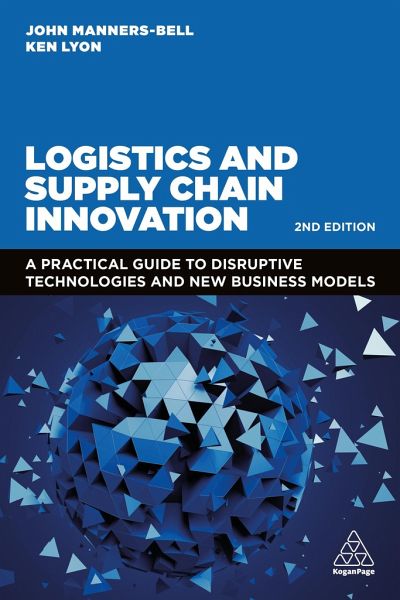
Logistics and Supply Chain Innovation
A Practical Guide to Disruptive Technologies and New Business Models
Versandkostenfrei!
Versandfertig in 1-2 Wochen
147,99 €
inkl. MwSt.
Weitere Ausgaben:

PAYBACK Punkte
74 °P sammeln!
Global disruption, new technologies and changing consumer habits are causing turmoil in the supply chain industry. This book shows businesses how to remain resilient in this dynamic new environment. The supply chain crisis of 2021 exposed the necessity of a sustainable supply chain. The Fourth Industrial Revolution has transformed our society and economy. The logistics and supply chain industry continues to be innovated by automation, blockchain and sustainability. Amid all this volatility, it is vital for businesses to not only protect their operations from disruption, but to rise to the chal...
Global disruption, new technologies and changing consumer habits are causing turmoil in the supply chain industry. This book shows businesses how to remain resilient in this dynamic new environment. The supply chain crisis of 2021 exposed the necessity of a sustainable supply chain. The Fourth Industrial Revolution has transformed our society and economy. The logistics and supply chain industry continues to be innovated by automation, blockchain and sustainability. Amid all this volatility, it is vital for businesses to not only protect their operations from disruption, but to rise to the challenge that these innovations pose to become game-changers in their sectors. Now in its second edition, Logistics and Supply Chain Innovation provides vital insight into the major trends transforming the supply chain and logistics industry. Featuring a new section on the role of technologies in reducing carbon emissions, case studies from companies such as Amazon, Alibaba, Maersk, UPS and DHL, as well as a full update of all existing content on crowd sourcing and shipping, on-demand delivery, autonomous vehicles and more, Logistics and Supply Chain Innovation is the essential guide to thriving in a rapidly developing logistics landscape. Online supporting resources include PowerPoints and sample case studies.













